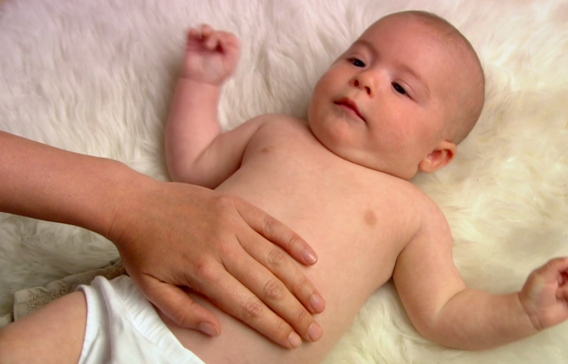Contents
As the smile of a newborn is cute and angelic, his/her early stage problems act as a nightmare for new parents. Newborns are more susceptible to diseases as their immune system is not fully developed.
Infants need extra care and attention as compared to toddlers. These situations are so newfangled for new parents to go nuts for predicting what is actually going on? Newborns problems can vary from a simple cold to severe jaundice in an early stage. So always pay special attention to hygiene like wash your hand or you can use mild sanitizer before handling a newborn. If you are having a contagious disease like cold or fever avoid getting close to your little one, it might be difficult to keep a distance from your chubby teddy but it is just to save him/her from getting influenced by disease.
Don’t fret! Here is the list of some common problems about which every new parent should be aware of to protect their newborn if trapped in kind of situations:
Jaundice:
This disease targets your newborn may be on 2 and 4th day after birth and can be mild or severe. You can keep a check by pressing gently on the forehead or nose in proper light or you can say in daylight if the skin color changes to yellow it means your newborn suffering from mild jaundice. This disease appears because of the high level of bilirubin in the bloodstream, as the liver of a newborn is immature and in some cases not able to control, bilirubin level. If jaundice lasts for more than 3 weeks one must consult a pediatrician. Other symptoms of severe jaundice are :
- If the skin of arms and legs getting more yellowish.
- The color of eyes getting yellow.
- If newborn doesn’t take feed properly and cry continuously.
Colic:
Colic is a kind of peculiar situation in which an infant starts crying continuously for 2 to 3 hours mostly in the evening, for 2 to 3 times a week and this condition can persist for 3 weeks. It doesn’t harm your infant but definitely bothers new parents. Sometimes guessing that baby is colicky or crying due to gassy stomach lead to a confusing state.

Symptoms:
- If a newborn is of 4 to 5 month and crying episodically at a particular time.
- He/she is crying louder and highly pitched
- Gassy tummy or for no reason.
How to calm a colic baby on your own at home:
- A warm bath can help
- One can try an infant massage
- Place a warm water bottle on newborn’s tummy
- Try to make your little one burp.
- Carry your baby in your arm and go for a walk.
- Lastly, try to distract him/her.
- Colic drops( as per pediatrician’s prescription)
However it is not harmful, one can still consult a pediatrician for an expert opinion to overcome the situation easily.
Stomach distention:
It is the condition when the soft belly of your newborn gets harder and looks like swollen. The reason behind this can be a gas or constipation as the digestive system of your baby is still to get developed properly. But in some cases, it can be a severe problem if a bluish tint and harder abdominal condition persist. In this case, the new parents should consult a pediatrician immediately.
Coughing in infants:
Coughing in infants is more alarming in the case of babies below age 1. Mostly coughing indicates a common cold, which is body’s way to protect itself but if your infant is coughing terribly especially in winters then it can be due to some viral infection. In common cold, nights became more uncomfortable as compared to daytime so always place a humidifier in the room and elevate your newborn’s head with the help of pillows for easy breathing and comfortable sleep.

Two type of coughs:
A dry cough: which indicates a common cold.
Wet cough (mucus): which indicates some kind of infection (bacterial or viral).
Alert:
- Breathing faster than usual breathing rate.
- If an infant is younger than 3 months.
- Having fever 101 degrees Fahrenheit or more.
- Choking and vomiting while coughing.
Usually, an infant below 3 months is not prone to coughing but if it happens, consult your doctor for medication.
Vomit:
Sometimes your little one can spit up milk after getting feed, this can be because you forgot to make him/her burp. Vomiting can be caused if your infant is lactose intolerant or allergic to breastmilk. Frequent vomiting or spitting up milk can lead to serious problems like dehydration and inadequate weight gain. In many cases, the reason for vomiting is a digestive disorder or some kind of infection.
If the color of vomit looks greenish then it could be serious so, go for an immediate pediatric consultation.
Wise words: You can also read some basic tips about Newborn’s Food, Bath, Clothing, Sleep, and Poop. If you are a new parent, always have patience as your cutie pie is new to the environment and at early stage he/she is trying to adjust, rather if you find anything wrong with them, go and consult your pediatrician without any hesitation, as they surely understand the anxiety and concern of being a new parent. Good luck!

